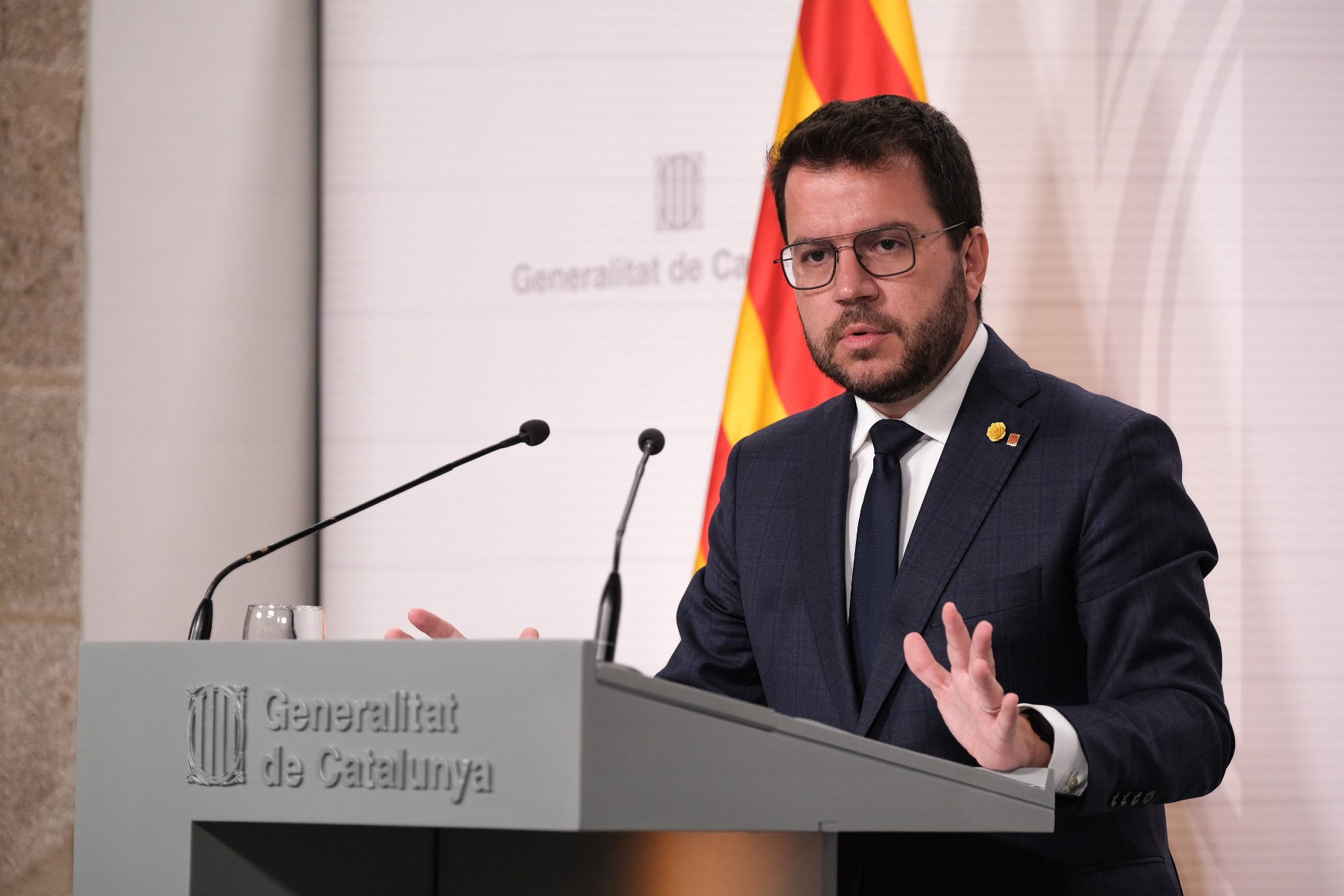Catalonia's president Pere Aragonès has given a press conference to sum up the political year, four days after the suspension of the speaker of the Catalan Parliament, Laura Borràs, with the votes of Aragonès's party ERC. Aragonès avoided referring to the severe criticism of ERC and other parties made by the speaker at the time, and he expressed the conviction that this situation will not have an effect on the continuity of the Catalan government's coalition agreement with Junts, of which Borràs is president. Instead, he launched a message to his partners to "isolate those criticisms which are not constructive" and to "leave behind the day-to-day scrapping".
"The application of Parliament's regulations last week may generate noise and difficulties, but we must put the country's great challenges above these circumstances. We must overcome the difficulties that may arise", he claimed, in reference to the discontent that the ERC vote caused in some sectors of Junts.
Beyond that episode, Aragonès made a positive assessment of the functioning of the Catalan government, of the work of all the ministers; he assured that the Junts ministers have not conveyed to him that there should be any change in the government pact; and he called for confidence in Catalonia and its assets. "To win, any defeatist speech must be abandoned. Let's leave behind the daily scrapping," he asked.
Budget
In reviewing the work done this year, he emphasized the good evolution of the Catalan economy, after the Covid crisis, at the same time admitting that the situation caused by the war in Ukraine is highly complex and predicting that growth will now be slower but that there will be no recession. He stressed the effect that inflation is having on families and companies, and he stated that one of the central objectives of his government will be to guarantee the passing of this year's budget, for the preparation of which he demanded "maximum involvement" of all ministers while also guaranteeing the intention to approach the project with all agents involved in the economy.
Aragonès said this intention is to pass the budget with the votes of the groups that facilitated the formation of the government in 2021 - the three pro-independence parties ERC, Junts and the CUP - although it seems more feasible to achieve the repetition of the agreement with the alternative left Comuns, with whom the budget bill was passed this year.
Legislative reforms
After last week's meeting of the dialogue table with the Spanish government, which continues without setting out any specific proposals, the Catalan president assured that despite the difficulties, the first agreements are beginning to be constructed in this forum and he asserted that progress in the de-judicialization of the political conflict on Catalonia will have to be effective before the end of December.
He avoided referring to specific issues, arguing for the need to be discreet over the talks, although he did reiterate, without explicitly referring to the offence of sedition, that the reform of the Spanish Penal Code only requires the Sánchez government's willingness to act, because there is sufficient parliamentary majority to carry it forward. Aragonès assured that the aim is for the process of ending judicialization to have the effects of the amnesty and to guarantee that there will be no prison, exile or offensives by the Court of Auditors against pro-independence leaders based on their political beliefs.
Aragonès also gave a a rebuttal, without anyone prompting him to, over the assessment made by Spanish prime minister Pedro Sánchez of the fall in support for Catalan independence according to the CEO poll, a result which the PM attributed to Catalan society's fatigue and the success of the dialogue process; Aragonès challenged him, suggesting that "if the prime minister of Spain is so sure that dialogue and negotiation will minimize the independence movement, then he should put out the ballot boxes". "If they don't do this, it's because they know they won't win", he replied, in addition to reiterating that the guide for the dialogue with the state is the report of the Latvian deputy Boriss Cilevics passed by the Council of Europe. In fact, Aragonès relativized the supposed decline in support for independence, noting that the data is similar to that indicated by the CEO just before the October 1st referendum in 2017.
The president, who appeared in a tie, criticized that the measures put forward by the Spanish government to reduce energy consumption have been adopted without consulting the country's autonomous governments, but he assured that those that are "common sense" will be applied.

